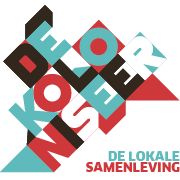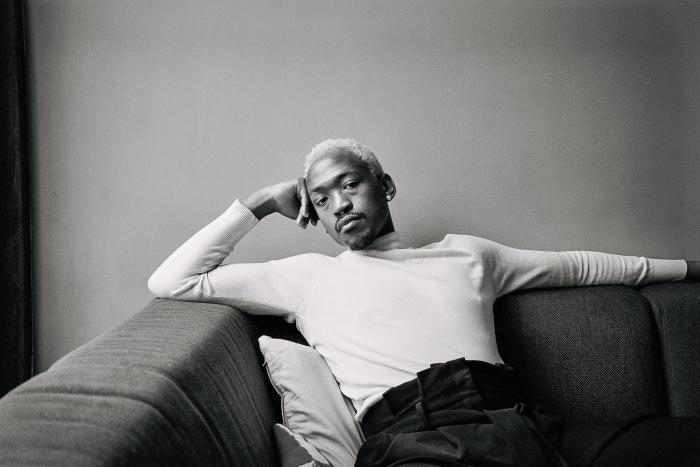Dat dit geweld moet bestreden worden met dezelfde middelen, is wat Fanon én Kopano zeggen. We moeten de wonde helen. Door zichzelf te helen, zichzelf te erkennen. Door onze geest te dekoloniseren. Want zoals baanbreker Steve Biko het reeds verwoordde: het machtigste wapen in de handen van de onderdrukker is de geest van de onderdrukten. De taal, allereerst, is daar een middel toe. De erfenis van Audre Lorde leert ons dat poëzie een tool is. Een middel om ons in de positie te brengen om het werk te doen. Door de overheersingen te benoemen, en hen om die manier te contesteren. Al is misschien een heel eigen taal nodig, zodat niets verloren gaat in de vertaling. Daarnaast is ook het terugeisen van land een belangrijke factor. Middelen zijn hetgeen waarmee de kolonisatie begonnen is, maar is ook datgene wat nodig is om werkelijk te kunnen dekoloniseren en helen. The land is the people, and the people is the land.
In een vurig pleidooi pleit Kopano voor het helen van de wonden die systemen van kolonisatie en slavernij eeuwen geleden sloegen maar die nog steeds niet gedicht zijn. In bevlogen woorden en met behulp van belangrijke stemmen uit zowel verleden (Franz Fanon, Audre Lorde, Toni Morrison) als heden (Koleka Putuma, Ariana Brown) construeert hij een genealogie van de wonde. Om van daaruit verder te denken. Want de strijd is niet ‘sociaal dood’, noch is de toekomst noodgedwongen wit. Het enige wat nodig is, is buiten de grenzen denken die vandaag nog belemmeren.
De volledige webinar is te bekijken op https://youtu.be/b1rnCu1nbk0
Korte biografie van de spreker:
Kopano Maroga (die/hen/hun) is performancekunstenaar, schrijver, cultureel werker en medeoprichter van de sociaal-culturele kunstorganisatie ANY BODYZINE. Kopano is curator en dramaturg in Kunstencentrum Vooruit in Gent, België. Momenteel is die ook kandidaat voor een Master in interdisciplinaire studies in publieke sferen en performance studies aan het Instituut voor Creatieve Kunsten via de universiteit van Kaapstad. Kopano gelooft sterk in de kracht van de liefde als wapen van de massaconstructie.
Foto Kopano: copyright Louis Kerckhof.
Extra leeslijst van Kopano Maroga
WHERE DO WE BEGIN: decolonization and the unending project of healing
“The most potent weapon of the oppressor is the mind of the oppressed. So as a prelude whites must be made to realise that they are only human, not superior. Same with Blacks. They must be made to realise that they are also human, not inferior.”
- Steve Biko, I Write What I Like
(Murdered: September 12, 1977, Pretoria, South Africa)
++++++++++++++++++++++++++++++++++++++++++
Tracing the genealogy of the pain and destruction of people and the planet fostered by colonialism (both past and present) is an insurmountable (and, perhaps, improbable) project. Though, it is my belief that without equipping ourselves with a rigorous knowledge of what has created the conditions for our suffering and grievous global inequality at the intersections of race, gender and citizenship (among others), we doom ourselves to replicating the past and denying ourselves the possibility of collective liberation and self actualization.
Below I have collected a series of texts (in varying medias and mediums) that have been helpful in guiding me to ask better questions of myself, and the world more broadly, in service of liberation from colonial domination and its legacies and healing the wounds it has and continues to create. These texts are meant to serve as touchstones that I hope to be able to expound on more deeply in my presentation.
Koleka Putuma and the contemporary complexes of post-colonial South Africa
“You have taken the liberty to colonize the concept of god. Gave god a gender, a skin colour and a name in a language we had to twist our mouths around Blasphemy is wrapping slavery in the Gospel and calling it freedom. Blasphemy is having to watch my kind use the same gospel and enslave each other”
- Koleka Putuma, Water
The doctrine of discovery and (some) of the legal and religious foundations of colonization https://escholarship.org/content/qt3cj6w4mj/qt3cj6w4mj.pdf?t=po79hi
Frantz Fanon, postcolonial humanism and mental health
“What he [Fanon] is arguing for is that once the unequal power relations of colonialism have been excluded, decolonization can lead to mutual transformation of the colonizer and the colonized.” - Pramod K. Nayar, Frantz Fanon: Toward a Postcolonial Humanism
https://www.researchgate.net/publication/256009274_Frantz_Fanon_Toward_a_Po stcolonial_Humanism
“Fanon ultimately viewed institutionalised care as a mode of disciplinary power in the regulation of people. He saw it as a proxy mechanism of control directed at those who displayed an inability to manage the double-bind nature of oppressive colonial contexts.”
- Garth Stevens, What Fanon still teaches us about mental illness in post-colonial societies
Recognition, intersectionality and selfhood through the work of Audre Lorde
The Black Unicorn by Audre Lorde
The black unicorn is greedy.
The black unicorn is impatient. 'The black unicorn was mistaken for a shadow or symbol
and taken
through a cold country
where mist painted mockeries
of my fury.
It is not on her lap where the horn rests but deep in her moonpit growing.
The black unicorn is restless
the black unicorn is unrelenting
the black unicorn is not
free.
Ariana Brown and the work of cultural reclamation
“If you are alive you are descended from a people that refused to die. Nothing is more sacred than you”
- Ariana Brown, Curanderismo
++++++++++++++++++++++++++++++++++++++++++
“She is a friend of my mind. She gather me, man. The pieces I am, she gather them and give them back to me in all the right order.”
― Toni Morrison, Beloved

